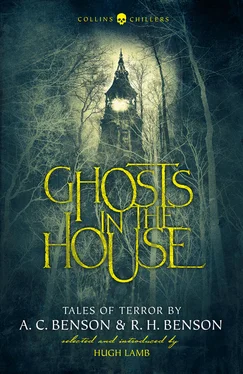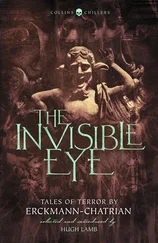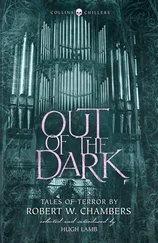1 ...6 7 8 10 11 12 ...19 I looked up at Monsignor and saw him nodding emphatically to himself.
THE TRAVELLER
R.H. Benson
‘I am amazed, not that the Traveller returns from that Bourne, but that he returns so seldom.’
The Pilgrims’ Way
On one of these evenings as we sat together after dinner in front of the wide open fireplace in the central room of the house, we began to talk on that old subject – the relation of Science to Faith.
‘It is no wonder,’ said the priest, ‘if their conclusions appear to differ, to shallow minds who think that the last words are being said on both sides; because their standpoints are so different. The scientific view is that you are not justified in committing yourself one inch ahead of your intellectual evidence: the religious view is that in order to find out anything worth knowing your faith must always be a little in advance of your evidence; you must advance en échelon . There is the principle of our Lord’s promises. “Act as if it were true, and light will be given.” The scientist on the other hand says, “Do not presume to commit yourself until light is given.” The difference between the methods lies, of course, in the fact that Religion admits the heart and the whole man to the witness-box, while Science only admits the head – scarcely even the senses. Yet surely the evidence of experience is on the side of Religion. Every really great achievement is inspired by motives of the heart, and not of the head; by feeling and passion, not by a calculation of probabilities. And so are the mysteries of God unveiled by those who carry them first by assault; “The Kingdom of Heaven suffereth violence; and the violent take it by force.”
‘For example,’ he continued after a moment, ‘the scientific view of haunted houses is that there is no evidence for them beyond that which may be accounted for by telepathy, a kind of thought-reading. Yet if you can penetrate that veneer of scientific thought that is so common now, you find that by far the larger part of mankind still believes in them. Practically not one of us really accepts the scientific view as an adequate one.’
‘Have you ever had an experience of that kind yourself?’ I asked.
‘Well,’ said the priest, smiling, ‘you are sure you will not laugh at it? There is nothing commoner than to think such things a subject for humour; and that I cannot bear. Each such story is sacred to one person at the very least, and therefore should be to all reverent people.’
I assured him that I would not treat his story with disrespect.
‘Well,’ he answered, ‘I do not think you will, and I will tell you. It only happened a very few years ago. This was how it began:
‘A friend of mine was, and is still, in charge of a church in Kent, which I will not name; but it is within twenty miles of Canterbury. The district fell into Catholic hands a good many years ago. I received a telegram, in this house, a day or two before Christmas, from my friend, saying that he had been suddenly seized with a very bad attack of influenza, which was devastating Kent at that time; and asking me to come down, if possible at once, and take his place over Christmas. I had only lately given up active work, owing to growing infirmity, but it was impossible to resist this appeal; so Parker packed my things and we went together by the next train.
‘I found my friend really ill, and quite incapable of doing anything; so I assured him that I could manage perfectly, and that he need not be anxious.
‘On the next day, a Wednesday, and Christmas Eve, I went down to the little church to hear confessions. It was a beautiful old church, though tiny, and full of interesting things: the old altar had been set up again; there was a rood-loft with a staircase leading on to it; and an awmbry on the north of the sanctuary had been fitted up as a receptacle for the Most Holy Sacrament, instead of the old hanging pyx. One of the most interesting discoveries made in the church was that of the old confessional. In the lower half of the rood-screen, on the south side, a square hole had been found, filled up with an insertion of oak; but an antiquarian of the Alcuin Club, whom my friend had asked to examine the church, declared that this without doubt was the place where in pre-Reformation times confessions were heard. So it had been restored, and put to its ancient use; and now on this Christmas Eve I sat within the chancel in the dim fragrant light, while penitents came and knelt outside the screen on the single step, and made their confessions through the old opening.
‘I know this is a great platitude, but I never can look at a piece of old furniture without a curious thrill at a thing that has been so much saturated with human emotion; but, above all that I have ever seen, I think that this old confessional moved me. Through that little opening had come so many thousands of sins, great and little, weighted with sorrow; and back again, in Divine exchange for those burdens, had returned the balm of the Saviour’s blood. “Behold! a door opened in heaven,” through which that strange commerce of sin and grace may be carried on – grace pressed down and running over, given into the bosom in exchange for sin! O bonum commercium! ’
The priest was silent for a moment, his eyes glowing. Then he went on.
‘Well, Christmas Day and the three following festivals passed away very happily. On the Sunday night after service, as I came out of the vestry, I saw a child waiting. She told me, when I asked her if she wanted me, that her father and others of her family wished to make their confessions on the following evening about six o’clock. They had had influenza in the house, and had not been able to come out before; but the father was going to work next day, as he was so much better, and would come, if it pleased me, and some of his children to make their confessions in the evening and their communions the following morning.
‘Monday dawned, and I offered the Holy Sacrifice as usual, and spent the morning chiefly with my friend, who was now able to sit up and talk a good deal, though he was not yet allowed to leave his bed.
‘In the afternoon I went for a walk.
‘All the morning there had rested a depression on my soul such as I have not often felt; it was of a peculiar quality. Every soul that tries, however poorly, to serve God, knows by experience those heavinesses by which our Lord tests and confirms His own: but it was not like that. An element of terror mingled with it, as of impending evil.
‘As I started for my walk along the high road this depression deepened. There seemed no physical reason for it that I could perceive. I was well myself, and the weather was fair; yet air and exercise did not affect it. I turned at last, about half-past three o’clock, at a milestone that marked sixteen miles to Canterbury.
‘I rested there for a moment, looking to the south-east, and saw that far on the horizon heavy clouds were gathering; and then I started homewards. As I went I heard a far-away boom, as of distant guns, and I thought at first that there was some sea-fort to the south where artillery practice was being held; but presently I noticed that it was too irregular and prolonged for the report of a gun; and then it was with a sense of relief that I came to the conclusion it was a far-away thunderstorm, for I felt that the state of the atmosphere might explain away this depression that so troubled me. The thunder seemed to come nearer, pealed more loudly three or four times and ceased.
‘But I felt no relief. When I reached home a little after four Parker brought me in some tea, and I fell asleep afterwards in a chair before the fire. I was wakened after a troubled and unhappy dream by Parker bringing in my coat and telling me it was time to keep my appointment at the church. I could not remember what my dream was, but it was sinister and suggestive of evil, and, with the shreds of it still clinging to me, I looked at Parker with something of fear as he stood silently by my chair holding the coat.
Читать дальше












